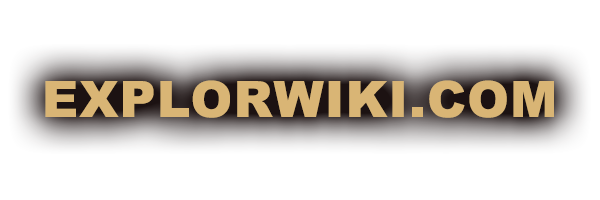Science isn’t just something confined to labs, textbooks, or school classrooms—it’s the force that shapes our world, inspires innovation, and transforms lives. From the way we communicate to how we travel, heal, eat, and even dream about the future, science is behind it all. But more importantly, science starts with a simple spark: curiosity. And from that spark, a journey of discovery begins—one that can change your life in unexpected and incredible ways.
In this article, we’re going to take a deep dive into the transformative power of exploring science, how it feeds the mind and spirit, and how anyone, regardless of background or education, can embark on this journey.
1. The Power of Curiosity: The First Step Toward Discovery
Every scientific breakthrough ever made started with a question. Curiosity is the engine of progress—it drives us to ask “Why?”, “How?”, and “What if?” Whether it’s a child asking why the sky is blue or a researcher wondering if there’s life on Mars, questions spark exploration.
What sets scientists apart isn’t just knowledge—it’s the drive to understand, to test ideas, and to never settle for “we already know.” You don’t need a PhD to be curious. In fact, many of the most revolutionary ideas have come from outsiders, tinkerers, and curious minds unwilling to accept the status quo.
2. Science Is All Around Us—You’re Already a Scientist
You might not think of yourself as a scientist, but everyday actions like cooking, gardening, or fixing a gadget involve scientific thinking. When you adjust a recipe, troubleshoot your phone, or wonder why your plant isn’t growing—you’re experimenting, observing, and problem-solving.
The more we recognize that science is woven into our daily lives, the more empowered we become to use it. From reading food labels to understanding the weather, science gives us tools to make smarter choices and better decisions.
3. Learning Science Boosts Critical Thinking Skills
One of the most profound benefits of exploring science is how it sharpens your mind. Science teaches you to question assumptions, evaluate evidence, and think logically. These skills aren’t just valuable in labs—they’re essential in everyday life.
In a world overflowing with misinformation and biased opinions, being scientifically literate helps you separate fact from fiction. Whether you’re reading a news article or evaluating a health trend, a scientific mindset gives you the upper hand.
4. Science Inspires Innovation and Creativity
Contrary to the stereotype of science being cold or mechanical, science is one of the most creative pursuits you can engage in. Solving problems requires imagination. Discovering new patterns involves intuition. Designing experiments or inventing new technologies requires thinking outside the box.
Innovation thrives when curiosity meets creativity, and the scientific method provides the structure to turn wild ideas into practical realities. Think about how space travel, smartphones, and vaccines started as mere concepts—and are now essential parts of our lives.
5. Exploring Science Can Improve Your Health
Understanding science isn’t just about knowledge—it’s about living a healthier life. When you understand how your body works, how diseases spread, or how medications function, you’re more equipped to make choices that improve your well-being.
From knowing the difference between a virus and bacteria to interpreting a nutrition label, scientific literacy can empower you to take control of your health, ask better questions at the doctor’s office, and understand the risks and benefits of treatments.
6. Science Builds Better Communities
Scientific exploration doesn’t happen in isolation—it’s a collaborative process. And science brings people together. Communities that embrace scientific thinking tend to be more open-minded, innovative, and resilient.
Think about how science has helped us tackle global challenges like pandemics, climate change, and energy shortages. Science fuels public policy, community development, and sustainability. When people unite around evidence and knowledge, solutions become possible.
7. Science Fuels Career Opportunities
We live in a world where science, technology, engineering, and math (STEM) skills are in high demand. But you don’t have to be a rocket scientist to benefit. Exploring science can open doors in healthcare, environmental work, education, data analysis, journalism, and more.
Even if you don’t choose a career in science, scientific thinking enhances employability. Problem-solving, data interpretation, and analytical thinking are skills that make you stand out in virtually every industry.
8. Science Offers a Deeper Understanding of the Universe
If you’ve ever stared up at the stars or watched the crashing waves of the ocean and felt awe, you’ve experienced the wonder that science helps explain. From the Big Bang to black holes, from the quantum realm to DNA strands, science reveals the breathtaking complexity of our universe.
Exploring these mysteries doesn’t diminish their beauty—it deepens it. Knowing how rainbows form or how a butterfly develops doesn’t make them less magical—it makes them more extraordinary.
9. Science Is for Everyone—Not Just Professionals
One of the biggest myths about science is that it’s only for geniuses or academics. That couldn’t be further from the truth. Anyone can engage with science, at any age or education level. There are community science projects, open data, online courses, and YouTube channels designed to make science accessible to everyone.
You can start by watching documentaries, reading science magazines, or even participating in citizen science apps that track wildlife or weather patterns. The gate to science is wide open—you just have to walk through.
10. Science Can Spark a Lifelong Passion
Once you start exploring science, it’s hard to stop. Every discovery leads to another question. Every answer deepens your understanding and sparks new curiosity.
This lifelong journey can be deeply fulfilling. Whether you become an amateur astronomer, a DIY biologist, or simply someone who enjoys scientific documentaries—science offers endless paths to explore and enjoy.
Conclusion: Let Curiosity Be Your Guide
At its core, science is about wonder, curiosity, and the courage to ask questions. You don’t need to wear a lab coat or hold a degree to explore the world scientifically. All you need is a desire to learn, observe, and discover.
When you embrace science, you gain more than knowledge—you gain a new lens to view the world, the confidence to navigate uncertainty, and the tools to shape your life and community in powerful ways.
So the next time you’re curious about how something works, don’t dismiss it—explore it. That small moment of curiosity might just be the beginning of a journey that changes your life.
Would you like this article turned into a downloadable PDF, social media posts, or even a newsletter series?
Here some recommended links selected for you: The Best Books of the Month, Todays best Deals at Amazon, Best Sellers in Cell Phones & Accessories and last but not least the easy and great way to send a gift for the holidays: Amazon.com eGift Card (Instant Email or Text Delivery).




